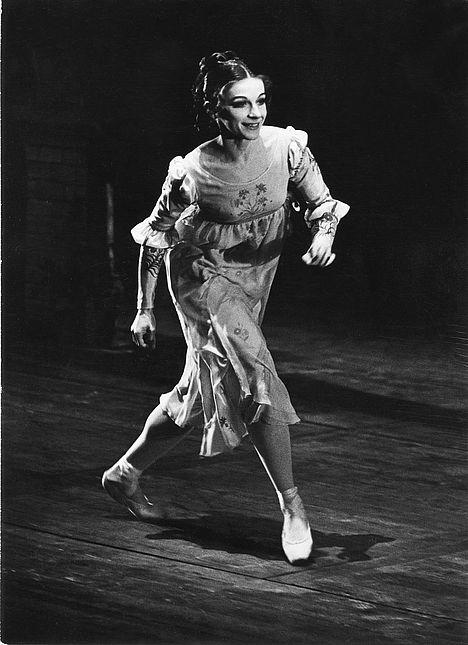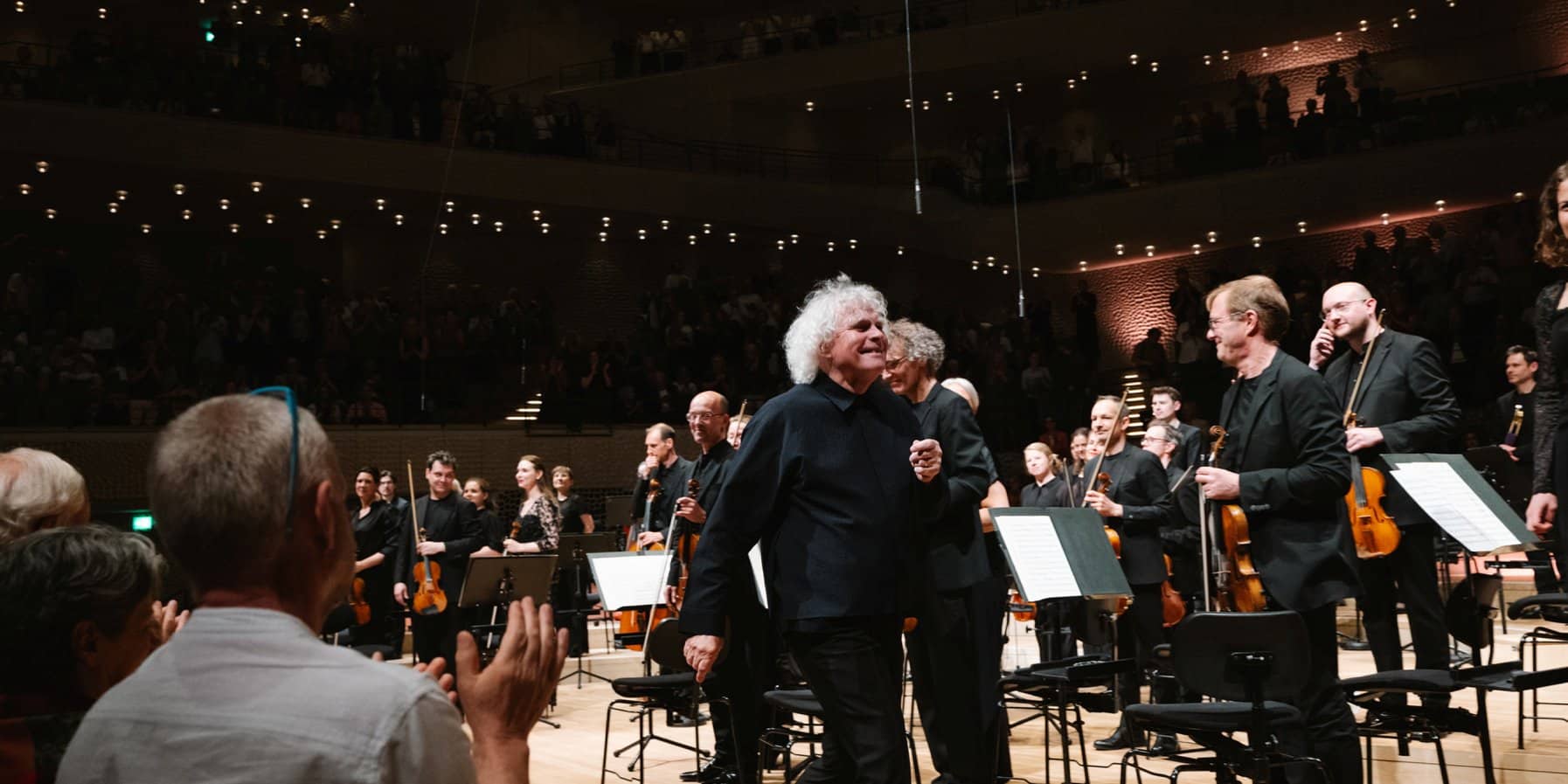Is there life in the old labels yet?
mainCosta Pilavachi, the former Universal classical honcho, has guest-edited the current issue of Classical Music magazine. He leads off with an essay on the state of major labels as they face the next wave of technology: the streaming wave.
Costa writes:
Today the classical industry is on the verge of another period of growth as we enter the ‘Age of Streaming’. Unlike the immediate success of the CD, kickstarted by the classical music community, the rapid expansion of the streaming business has been driven by pop fans. Growth in classical streaming has been rather slow – until recently.
We now find ourselves in a transitional era in which the classical industry is set to experience a streaming sales bump, like our pop brethren, but at the same time the decline of CD sales of recent years has slowed and we have even seen the emergence of a new ‘mini’ market for the venerable vinyl LP! The rate of change and consumer behaviour varies wildly between countries and nations, with the growth of streaming (and decline of the CD) mainly noted in the United States and the United Kingdom, while other European nations and the great classical music markets of Japan, Korea and Greater China are consuming music in all formats, whether physical or digital.
Technological innovation is a wondrous thing but for me the magic of the business to which I devoted my career is the music and the artists who bring this great art form to life, whether ‘live’ or through the medium of recordings. ‘Artists and Repertoire’ or simply ‘A+R’, is at the heart of the recording industry and the key to success – or failure…
Read on here.

photo: Daniele Venturelli





Streaming is the death of it – because that’s basically what YouTube is offering for free. And on most people’s systems the difference isn’t noticeable enough. Also, how different is the interpretation going to be from the numerous versions that have already been recorded? The quality has to be better. And when an artist/orchestra is performing 50+ times a year, the magic isn’t in pushing a red button on one of those occasions. The magic is in doing it well. And preferring the best formats (can stream as well if you like) – because these recordings have to last in good sound.
The irony of the recording companies was they made masters using the most vulnerable formats – lacquer discs and magnetic tapes. Learn some lessons.
The Berlin Phil’s Digital Concert Hall is a well conceived idea – the sound is quite good, but we have the video as well. The orchestra is always good, the guest artists are good (or they wouldn’t be there). The only problem is you’re “renting” the content from them.
The CD and LP was great because there was physical possession. There’s something passionate about collecting tangible things (especially used records) – the passion isn’t the same when it’s a media player online. Not as much a hobby anymore…
In my experience the sound of the DCH is inconsistent. Sometimes it’s good, sometimes it sucks. And they still are only at 256 kbit stereo, sufficient, like good FM radio, but nothing high-endish.
They should have the option to stream in a lossless high-end format (can flac be streamed?) and in Surround also.
IMO those upgrades would be much more obvious to do, than upgrading to 4K on the picture side, which does improve little to nothing to the music.
I agree, Jon H. I was in the record business for many years, and I miss the record stores where one could browse — as in the few remaining BOOK stores — for hours. I haven’t yet tried the BPO’s digital concert hall — I already has several hundred HvK recordings, and am not interested in those of of Simon Rattle (although Petrenko might be interesting, he’s not likely to get a major-label recording deal in this day and age). So much is available on You Tube, that even if there were record stores, I’d be fine with that …
Not dismissing the entirety of Mr Pilavachi’s arguments but how many of these crossover projects are truly merit-worthy let alone memorable? This is a rhetorical question. And to brag about the signing of Andrea Bocelli as if it were an accomplishment is beyond the pale and laughable. To be sure, some laughed themselves to the bank. Artistically speaking, they (and those who respond positively to their peddling) are bankrupt. On distribution via streaming, it is the present and future and it will be interesting how it evolves. Much work needs to be done however. For example, I miss being able to follow librettos in the booklets on opera sets. And I don’t necessarily want to be glued to a computer screen while listening. And so forth.
I think the majors have largely betrayed their purpose, the artform, and those who genuinely care. As a result I now mostly stream from the richness supplied by many an independent, small label (if and when they make their catalogues available — ECM is a major and lamented omission on USA streaming platforms, at least their classical; don’t know about their jazz).
“Crossover” (whatever THAT means) is — increasingly — helping the slow death of “classical” recordings. By “classical” I mean composers of works longer than pop-radio max of 3.5 minutes; also, for the most part, of DEAD composers (please comment). I don’t think ALL dead composers are classical, by any means, but being dead is pretty much a prerequisite…
Let’s forgive Mr. Pilavachi’s signing of Andrea Bocelli – after all, he needed to keep his job, and his job was to sign artists who could make money for the company. One can assume that Pilavachi signed Andre Rieu for the same reason, and indeed Philips cried all the way to the bank. I guess we should also forgive Pilavachi for signing Gergiev and the Mariinsky Opera, as he did so well before Putin took office. A&R directors didn’t invent the recording business — they have an obligation to just “go with it” and hopefully achieve some artistic good while also keeping money flowing into the company’s coffers. It’s a delicate balance to maintain, and Pilavachi certainly did better than most.
… it wouldn’t be out of place to give a floor to Medici I think 😉
Piffle. Two sentences say it all: “The difference lies in the type of artists who the labels sign and the different levels of investment devoted to promotion and marketing.” and “The backbone of the majors’ classical business is still the signing and development of the world’s best performers, the ones who have that elusive ‘star’ quality, the ability and willingness to expose themselves to mass media and to tour around the world performing their recorded repertoire.” The reality is that once the performance has been recorded, edited to whatever extent and fixed in a medium for distribution, and it doesn’t matter what that medium is (from 78-rpm shellac discs in manual sequence to DVD-A), no amount of promotion or marketing (fancy words for “hype”) will improve the product. As far as the “world’s best performers,” that is also very questionable to say the least. I will put Hyperion’s stable of pianists, including Mark-Andre Hamelin, Stephen Hough, Angela Hewitt, and a number of others, up against anyone signed to a Universal label, including Lang Lang. The majors often sign artists on the basis of appearance and whether they can be exploited for publicity purposes and not on the basis of artistic merit. They then drop them if the sales of recordings do not match the original overblown expectations, so that the signees never have the opportunity to develop artistically.
Pilavachi’s comments about repertoire are also self-serving. If the majors really wanted to market new music (other than what he refers to as “neoclassical”) they easily could. How about a 55-minute symphony in three movements, slow-slow-slow, with a soprano singing in Polish? Give me a break! Of course, the reference is to the Gorecki Third Symphony, specifically to the Nonesuch recording, which became a huge seller for Nonesuch, due to considerable airplay and publicity; I believe that that actually sold over one million copies.
Recording will survive, but I don’t know about the majors.
“The difference lies in the type of artists who the labels sign and the different levels of investment devoted to promotion and marketing.”
Fatally wrong. But that’s the delusional circle masturbation the majors engage in for years. Loss of sense of reality somehow.
No, it’s not the type of artists.
It’s the quality of them first of all.
Second it’s the quality of the product, the recording, that matters.
Only then, if you have all that secured, you might think about marketing as well.
But you can’t make a bad recording into a good one by marketing. Something the majors somehow have a hard time to understand, I don’t know why.
It’s not working in the long perspective.
Particularly the classical customers are not that stupid or deaf, that they couldn’t recognize a bad recording, and become suspicious about the business ethics of a label, if marketing hype tries to tell them to buy that shabby recording, just because it’s a big name and a glossy cover.
I don’t want my music in space i want it here….when i want it, how i want it and on the best possible sound system.
Moreover i need the booklet.
Streaming is for idiots, who will decide whay music i ‘can stream too’
It’s the end of the record business and for artists.
Youtube is a major factor in the disappearance of the music industry, coz every idiot can upload commercial recordings which are still for sale.
It’s high time youtube should know what copyright means and is, but hey even the record companies let them go away with it…
Maybe the record companies simply can’t afford the lawyers anymore to fight that problem successfully. welcome to corporate totalitarianism. The Apples, google, Facebook, are the new dictators.
Streaming is one technological change that is NOT an improvement. And alas, since so many people who don’t care about quality of sound, listening on their portable telephones is “good enough”. I agree that it’s “the end of the record business and for artists”. Too bad for us , the artists, and future generations of music lovers.
Streaming itself is just a delivery format. It can be done in high quality to high-end(ish) equipment.
The reason we see the promotion of streaming over download and physical, is that the big players in this business, Apple, google etc., do want to part with the private property model and turn us into consumer slaves. To be charged each time we use a product or service, which we no longer own, but only lease.